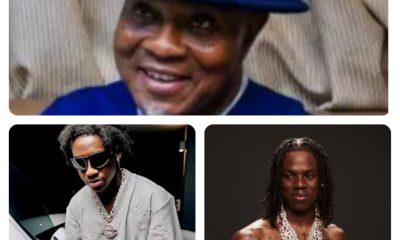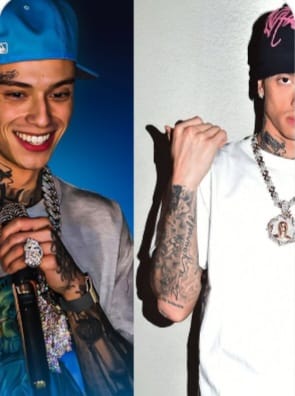Entertainment
Poet and Social Activist, Valentine Okolo, talks on Rape, Genocide, and the Power of Words

In this interview with Valentine Okolo the author of the thought provoking poetry book: I Will Be Silent speaks on the inspiration and much more :
Godwin Iheancho: Where did you get the idea for your most recent book?
Valentine Okolo: I got it from the title of a poem I wrote called “I Will Be Silent.” This was a poem I wrote concerning the genocide which happened in Darfur, Sudan, many years ago. I wrote it in response to the then international media blackout that occurred during that period and how men and young male children were systematically slaughtered by government supported Janjaweed militia. And how women were also gang raped, and impregnated by their oppressors, and sometimes mutilated.
In genocides rape is most times weaponized by the aggressive side, and the suffering sides to such wickedness are women, old and young. Such actions tear at my core and reveal mankind’s depravity at its worst. That poem and a few others similar to it form the back bone of the book.
Genocides, sex slavery, rape and a few other indignities suffered by many women in improvished regions of the world continue still. Boko Haram, and it’s aftermath, the Fulani Herdsmen follow in the footsteps of the Janjaweed militia in Sudan which commited those attrocities with government blessings.
In Nigeria, it is apparent that the government is in accord with Boko Haram and the Fulani Herdsmen as it has repeatedly played to the gallery whenever it is called to question regarding the poor equipments deployed and the improvishment of military troops sent to the effected regions to combat the insurgency. Rather, they result in the use of euphemisms by calling the terrorists “Bandits” and the deployment of mass media propaganda to negate the seriousness of the insurgency.
The entire idea of the book is centred around the themes of pain, and perseverance that these people, and may more like them in different regions of the world, face and have to endure constantly.
I Will Be Silent is not just a book to me. It is more than that. It is a call to witness. It is a series of poems which proceed not from the heart but from the gut of tribulation and endurance. It is a book which bears witness to the collected voices who cannot speak for themselves because they have been silenced.
Godwin Iheancho: How do you get inspired to write?
Valentine Okolo: Most times I feel the emotions of others when I write. In those moments I become that which I write about. I see with their eyes, I hear with their ears, I feel with their skin. In those moments I cease to be myself, and become someone else. I become her, they, it. I become someone’s dreams. And relive, sometimes, their nightmares.
I write from a place of suffering. From a place of joy. I explore the two extremes in my poetry.
In my book I Will Be Silent I wrote many poems which grew from those two extremes. Or should I say, some poems made me write them inspired by these extremes of human existence.
I most times don’t plan a poem in advance. Some poems, if I may use the expression, fall at my feet, almost fully formed. They are a few poems, however, that I do make plans to write in advance. And in order to write them I have to enter into a period of poetic gestation. A period in which I allow the idea of the poem to take root and grow within me until it is ready to be birthed. Sometimes the gestation period may take a few days. Sometimes it can take months or even years.
I like writing organically. So I don’t force anything out. I allow myself to be. I allow myself to feel. I allow the words to come to me like the wind. And I try to catch whatever message that is whispered in the breeze.
Godwin Iheancho : What’s your advice for aspiring writers?
Valentine Okolo: First, they should close their eyes and feel. And then write what they felt. Some of the notable works of literature (which includes fiction, non fiction, poetry, science fiction and so on) were written from an abundance of feelings. If you don’t feel what you have written, don’t expect someone else to feel it too. (Unless, you want to be too intellectual and write drab college textbooks.)
Your writing has to move you first before you expect it to move someone else. Write what you feel first. Then put it away for awhile, and then look at it again with the eyes of a stranger. If you read what you had written earlier with the stranger’s eyes and say to yourself: “Wow! Did I write this?” Then someone else will also be wowed by it as well.
Words convey emotions. Be successful in conveying your emotions in your lines.
Next is style.
If expressing your emotions is fuel for your writing, see style as your technique for progress.
See writing as you would a dance in progress. A dancer may have the necessary energy to prance about. But this prancing alone without an arranged motion may not result in anything beautiful to behold. A dancer uses learned dancing techniques and translates those techniques and that energy into beautiful motions (insert here any dance style of your choice: ballet, foxtrot, salsa, tango, hip-hop, contemporary, and so on). When done properly these motions of choreography capture your attention. For a writer, style is like those beautiful motions. Some you can learn from the writings of someone else. Some you can teach yourself.
If you can afford it, enrol into a good writing class with a teacher that you respect his or her style of writing. Such a person will help ground you in the proper techniques of sentence constructions, and the proper use of words, characterizations and lots more.
Godwin Iheancho: What’s the best thing about being a writer?
Valentine Okolo: It allows me to state what I feel. It allows me to display on a blank page the potency of my thoughts. I am a poet. And I write poetry. And to me words are not just a means of communication. To me words are life. Words carry with them a strong creative force. A force that makes things happen. The first thing that happened in the creation of this planet was the issue of a command. From God Almighty Himself. As documented in the Bible book of Genesis where it was written that there was darkness every where and the Earth was void and without form and the Spirit of God was hovering over the deep. And God Himself uttered the immortal words that started the beginning of life in this world. He said: “Let there be light.” And lo, light came to be. And illuminated the perpetual darkness.
Jesus Christ Himself used words to heal. It was written in the Gospels that He issued words of command and the blind were made to see, the lame walk, and the diseased were made clean. Even to the point of raising the dead. The words: “Lazarus, come forth!” are perhaps one of the most unforgettable lines I have ever read in any form of literature. Because they were more than just words. A mummified man who was dead for four days heard them from beyond the grave and rose to life!
Godwin Iheancho: How do you deal with writer’s block?
Valentine Okolo: I empty my mind. And do something else that is not related to what I am writing about. Sometimes I take long walks, and focus on being in the present. As I walk, I take note of the rise and fall of the land, the diverse faces of people, the roaming animals, and the sounds coming from cars and motorcycles. Most times when I do this ideas flow to me freely, clearing my imaginative inhibitors.
Get the book: I Will Be Silent on Amazon: www.amazon.com/author/valentineokolo
You can also follow him on Twitter. His handle: @poetval.
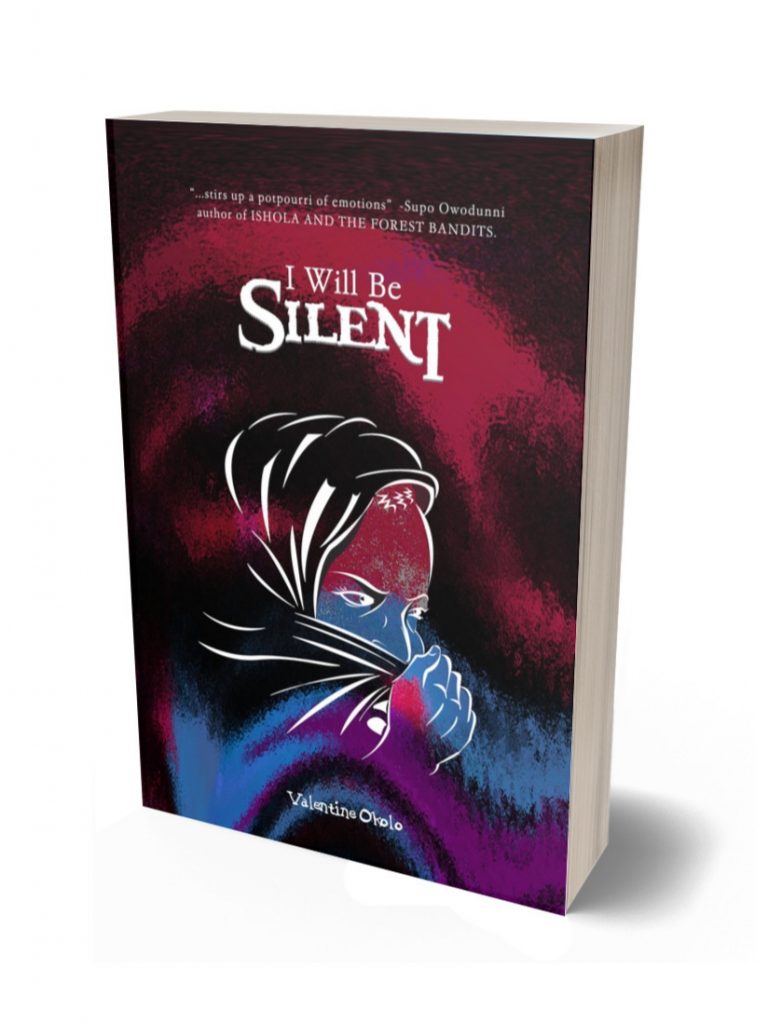
Entertainment
From Drill to Deen: Central Cee’s Conversion and the Power of Faith in Modern Hip-Hop

From Drill to Deen: Central Cee’s Conversion and the Power of Faith in Modern Hip-Hop
By George Omagbemi Sylvester
“The British rap star’s public declaration of Islam sparks global reactions and renews debate about spirituality, identity, and influence in contemporary music.”
British rap superstar Central Cee has publicly announced that he has converted to Islam, a revelation that has rapidly spread across global media and social platforms, drawing reactions from fans, cultural commentators and religious observers alike. The development marks a deeply personal shift for one of the most influential voices in modern UK drill, and it highlights the growing intersection between faith, identity and popular culture.
Central Cee, whose real name is Oakley Neil Caesar-Su, disclosed the decision during a recent livestream, where he stated that he had taken the Shahada, the Islamic declaration of faith that formally marks a person’s conversion to Islam.
According to multiple reports published on February 6, 2026, the rapper confirmed the conversion publicly, saying he had changed his name and embraced Islam, with friends present during the broadcast congratulating him.
The announcement quickly became a trending global topic, with thousands of fans flooding social media with messages of support and congratulation.
What happened, when, where and how
The confirmed facts are straightforward.
What happened: Central Cee announced his conversion to Islam.
Who: The British rapper, born Oakley Neil Caesar-Su.
When: The announcement surfaced publicly on or around February 6, 2026.
Where: The declaration was made during a livestream, widely circulated online.
How: He confirmed he had taken the Shahada and embraced Islam, with friends present during the session.
Before this announcement, Central Cee had never publicly declared adherence to any specific religion, though fans had long speculated about his spiritual leanings.
Background: the rise of a global rap force
Born on June 4, 1998, in London, Central Cee rose from the streets of Shepherd’s Bush to become one of the most commercially successful British rappers of his generation.
He achieved mainstream recognition with his 2020 single Day in the Life and later dominated charts with hits such as Doja and Sprinter, accumulating billions of streams worldwide.
By the mid-2020s, he had become a defining figure in UK drill, blending street narratives with a polished, globally accessible sound.
Reactions and significance
The news of his conversion triggered widespread reaction across continents. Many fans congratulated him, using phrases such as “Welcome to Islam, brother,” reflecting the celebratory tone among supporters.
Others expressed curiosity about whether the decision would influence his music, public image, or future lyrical direction.
Cultural analysts note that religion has long played a quiet but significant role in hip-hop. From Malcolm X’s influence on American rap consciousness to the presence of Muslim artists in both US and UK scenes, faith has often shaped artistic identity.
British sociologist Dr. Reza Pankhurst, writing on religion and youth culture, has argued that for many urban artists, faith offers “a language of discipline, moral structure and belonging in environments often defined by instability.”
Similarly, American scholar Dr. Sherman Jackson has noted that Islam’s appeal among musicians and athletes lies partly in its “emphasis on personal responsibility, spiritual dignity, and community.”
While these are broader observations about religious influence in culture, they help explain why high-profile conversions often resonate far beyond the personal sphere.
Why the announcement matters
Central Cee is not merely another celebrity; he is one of the most commercially powerful voices in British rap, with global reach across Europe, Africa, Asia and North America. His decisions, therefore, carry symbolic weight.
When artists of such stature publicly embrace a faith, it often triggers three parallel conversations:
First, identity: Fans begin to examine how the artist’s beliefs align with their lyrics and public persona.
Second, influence: Younger audiences may view the decision as aspirational or spiritually significant.
Third, authenticity: Critics and supporters alike debate whether faith will reshape the artist’s artistic content.
British cultural commentator Kehinde Andrews has previously observed that hip-hop is “not just music but a social language through which young people negotiate power, race, faith and identity.”
In that sense, Central Cee’s announcement becomes part of a larger cultural dialogue not merely a personal declaration.
The question of a new name
Some reports indicate that the rapper mentioned changing his name after taking the Shahada, though details remain inconsistent across sources.
While certain online reports suggested possible new names, there is no universally confirmed official new name from the artist at the time of reporting.
This remains an evolving aspect of the story, and responsible reporting requires caution until a formal statement is released through verified channels.
The broader context: faith and hip-hop
Central Cee joins a growing list of artists who have publicly embraced Islam. Over the decades, figures such as Yasiin Bey (Mos Def), Lupe Fiasco, Ice Cube, and Q-Tip have either converted to Islam or drawn heavily from Islamic teachings in their music.
In the UK, Muslim identity has long been intertwined with the grime and drill scenes, reflecting the multicultural realities of cities like London, Birmingham and Manchester.
Cultural historian Tricia Rose, one of the foremost scholars of hip-hop, once wrote that the genre “has always been a site of spiritual searching, moral struggle and social commentary.”
In that context, a public conversion is not an anomaly but part of a longstanding tradition of artists seeking meaning beyond fame and commercial success.
What remains unclear
Despite the viral spread of the story, certain details are still evolving:
The exact location of the livestream has not been formally confirmed.
The identity of the individuals present during the Shahada has not been publicly verified.
Any official legal name change has not been documented in confirmed public records.
Responsible journalism requires distinguishing between verified facts and social-media speculation.
Final assessment
Central Cee’s conversion to Islam is a deeply personal decision that has nonetheless sparked global conversation. Announced during a livestream in early February 2026, the declaration places one of Britain’s most influential rappers at the centre of a broader discussion about faith, culture and celebrity influence.
In an era where artists are often defined solely by streaming numbers and chart positions, his announcement underscores a different narrative: the search for meaning, identity, and spiritual grounding in the midst of global fame.
As the late scholar James Cone once wrote, “Spiritual transformation is the most radical form of social change, because it begins inside the human soul.”
Whether Central Cee’s journey will reshape his music or remain a private source of guidance is a question only time can answer. What is certain, however, is that his decision has already stirred conversations that extend far beyond the world of rap.
Entertainment
Remembering Afeez Adeshina “Destiny Boy” : A Life of Promise, Music, And Quiet Impact ~ 1ST ELEVEN9JA TV
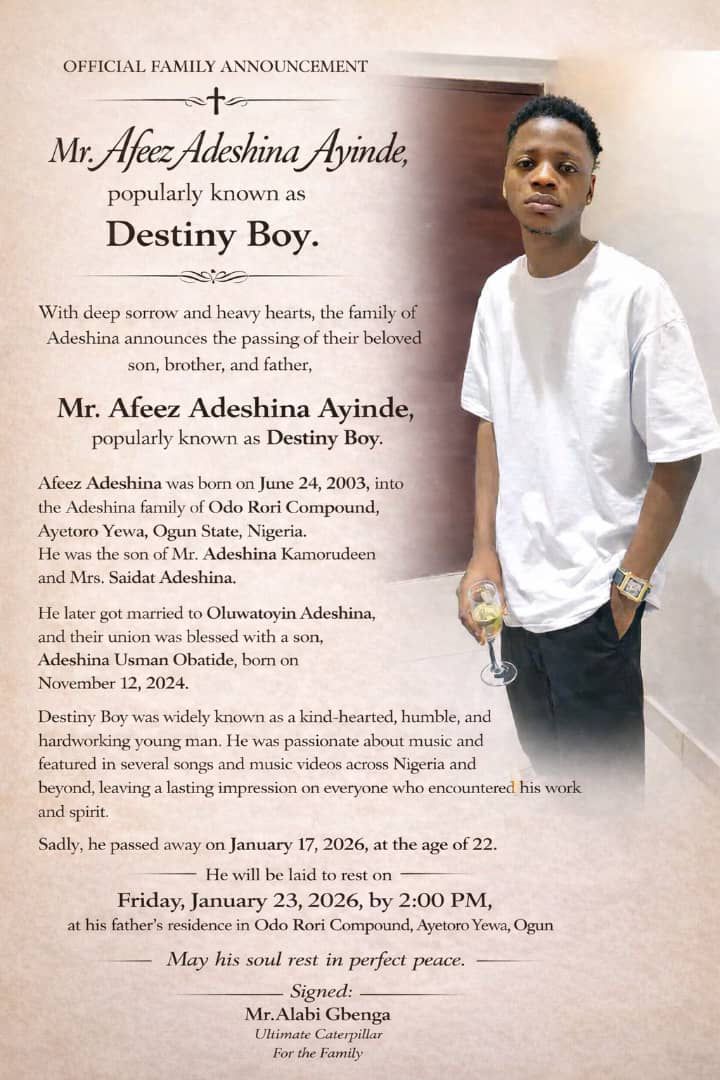
Remembering Afeez Adeshina “Destiny Boy” : A Life of Promise, Music, And Quiet Impact ~ 1ST ELEVEN9JA TV
By Alhaji Arems (Baba Fuji)
The Nigerian music scene is mourning the loss of Afeez Adeshina Ayinde, popularly known as Destiny Boy, whose passing has left a deep sense of grief among family, friends, and fans. Though his life was brief, his story is one marked by determination, creativity, and a steady rise driven by passion rather than noise. Destiny Boy passed away on January 17, 2026, at the age of 22, cutting short a journey that many believed was only just beginning.
Early Life And Background :
Afeez Adeshina was born on june 24, 2003, into the Adeshina family of Odo Rori Compound, Ayetoro Yewa, Ogun State, Nigeria. He was the son of Mr. Adeshina Kamorudeen and Mrs. Saidat Adeshina, raised within a close-knit family environment that shaped his values and character.
From an early age, Afeez was known for his calm demeanor and respectful nature. Those who grew up around him often describe him as gentle, focused, and quietly ambitious. Music became an outlet through which he expressed himself, long before public recognition followed. What began as interest and experimentation gradually turned into purpose.
Music Career And Creative Journey :
Known professionally as Destiny Boy, Afeez carved out his place in music through persistence rather than spectacle. He was deeply passionate about his craft and committed to growth, often collaborating and featuring in songs and music videos across Nigeria and beyond.
While he may not have been the loudest voice in the room, Destiny Boy earned respect for his work ethic and humility. He approached music with seriousness, seeing it not just as entertainment but as a path to building something meaningful. Colleagues and collaborators consistently describe him as hardworking, disciplined, and eager to learn — traits that set him apart in an industry often defined by fast success and fleeting attention.
His presence in multiple projects across different platforms reflected a steady upward movement. For many young creatives, Destiny Boy represented the quiet grind: showing up, improving, and letting the work speak.
Family Life And Personal Milestones :
Beyond music, Afeez embraced responsibility early in life. He got married to Oluwatoyin Adeshina, and their union was blessed with a son, Adeshina Usman Obatide, born on November 12, 2024. Becoming a husband and father added new depth to his life, grounding him further and reshaping his priorities.
Those close to him speak of his devotion to family and his desire to build a stable future. Balancing personal life with creative ambition was not always easy, but Afeez carried these responsibilities with maturity well beyond his years.
His Passing :
The news of Destiny Boy’s death on January 17, 2026, came as a shock to many. At just 22 years old, his passing raised a collective sense of loss — not only for what he had achieved, but for the potential that remained unrealized.
While details surrounding his death have been kept private, the impact has been deeply felt across his immediate community and within creative circles. Tributes have highlighted not only his music but his character: kind-hearted, respectful, and sincere.
Burial Arrangements :
The Adeshina family has announced that Afeez Adeshina Ayinde (Destiny Boy) will be laid to rest on:
Friday, January 23, 2026 :
Time : 2:00 PM
Venue : His father’s residence, Odo Rori Compound, Ayetoro Yewa, Ogun State
Family members, friends, colleagues, and well-wishers are expected to gather to pay their final respects and celebrate a life that, though short, left a meaningful imprint.
A Legacy Beyond Numbers :
Destiny Boy’s story is not one measured by chart positions or awards, but by consistency, humility, and quiet influence. He represented a generation of young Nigerian creatives navigating ambition, responsibility, and identity in real time.
In remembering Afeez Adeshina, many will recall a young man who showed up for his craft, valued his family, and treated people with respect. His journey serves as a reminder that impact is not always loud — sometimes, it is built patiently, one step at a time.
As he is laid to rest, his music, memories, and the lives he touched remain.
May his soul rest in perfect peace.
Entertainment
Benin Summit Group Congratulates Rema, Shallipopi for Flying the Benin Flag at AFRIMMA Awards
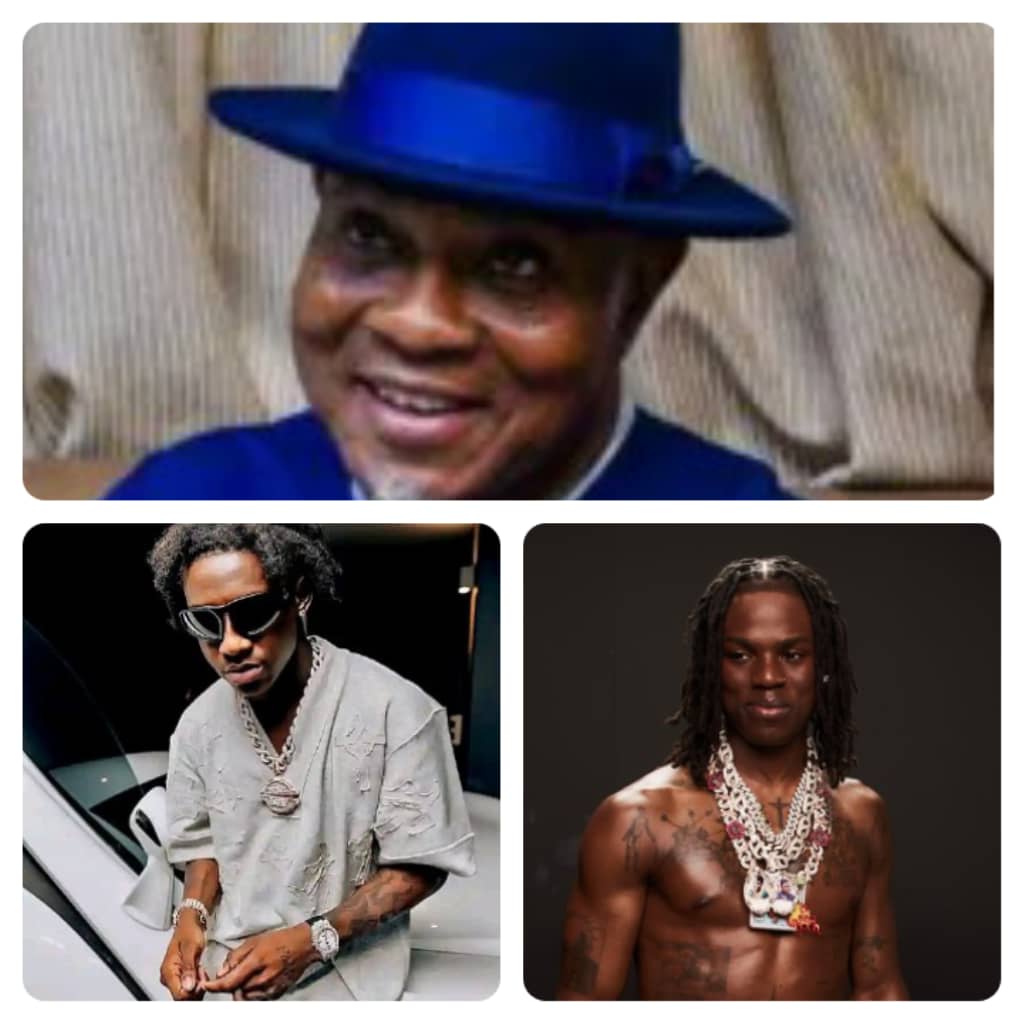
Benin Summit Group Congratulates Rema, Shallipopi for Flying the Benin Flag at AFRIMMA Awards
The Chairman-in-Council of the Benin Summit Group, Earl Osaro Onaiwu, has congratulated celebrated music stars Rema and Shallipopi for their outstanding achievements at the recently concluded AFRIMMA Awards, where they emerged as shining ambassadors of the Benin Kingdom on the global entertainment stage.
Rema, ( Divine Justice Ikubor) the internationally acclaimed Afrobeats sensation of Benin extraction, carted home three prestigious awards, while fast-rising artiste Shallipopi ( Crown Uzama) also clinched one award, marking a moment of pride not just for Edo State but for the entire Benin Kingdom.
In a statement issued by the Benin Summit Group, Osaro Onaiwu described their victories as a powerful demonstration of Benin excellence, creativity, and global relevance.
“I commend and congratulate Rema and Shallipopi for putting the Benin Kingdom firmly in the global space through their talent, hard work, and discipline. Their achievements are a source of pride to our people and an inspiration to our youths,” Onaiwu said.
He noted that the success of Benin sons in the global entertainment industry reinforces the importance of nurturing creativity and supporting young talents across music, film, fashion, and other creative arts.
“These accomplishments show what is possible when talent meets opportunity and determination. Benin land is rich in creativity, and the world is beginning to take notice,” he added.
Osaro Onaiwu further urged other Benin sons and daughters, particularly those in the creative and entertainment sectors, to remain focused and strive for excellence, emphasizing that global recognition comes through consistency, hard work, and commitment to craft.
“I urge others to strive harder to excel. Let the achievements of Rema and Shallipopi motivate the next generation to dream bigger, work harder, and represent Benin with dignity and pride wherever they find themselves,” he said.
He reaffirmed the commitment of the Benin Summit Group to promoting unity, culture, and development, including the creative arts, which he described as a powerful tool for projecting the Benin heritage and identity to the world.
According to Onaiwu, celebrating the successes of Benin sons and daughters across various fields remains central to the group’s mission of fostering unity, pride, and collective progress within the Benin Kingdom and the diaspora.
-

 celebrity radar - gossips6 months ago
celebrity radar - gossips6 months agoWhy Babangida’s Hilltop Home Became Nigeria’s Political “Mecca”
-

 society6 months ago
society6 months agoPower is a Loan, Not a Possession: The Sacred Duty of Planting People
-

 society5 months ago
society5 months agoReligion: Africa’s Oldest Weapon of Enslavement and the Forgotten Truth
-

 news6 months ago
news6 months agoTHE APPOINTMENT OF WASIU AYINDE BY THE FEDERAL GOVERNMENT AS AN AMBASSADOR SOUNDS EMBARRASSING






